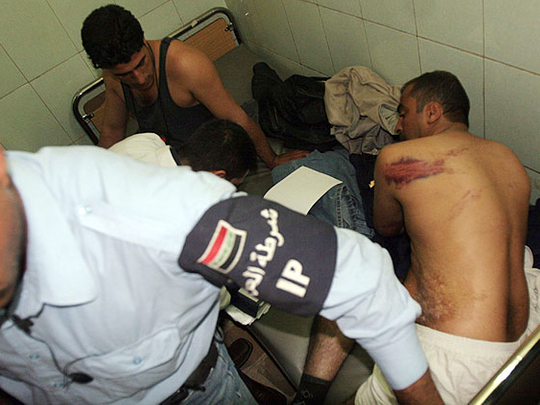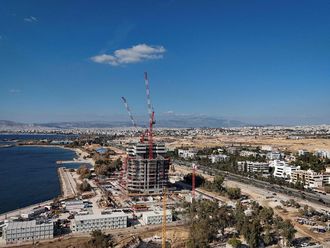
London: Washington on Sunday came under increasing pressure to investigate the allegations in the leaked Iraq war documents published by WikiLeaks, which Britain's deputy premier called "shocking".
Governments and human rights organisations alike put the focus on answers to the allegations made against US, allied and Iraqi troops as the whistleblowing website released 400,000 classified US military documents.
What's in WikiLeaks' Iraq war logs?
Fact file: All you need to know about WikiLeaks
The flood of material from 2004 to 2009 offers a grim snapshot of the conflict, especially of the abuse of Iraqi civilians by Iraqi security forces.
The heavily redacted logs appear to show that the US military turned a blind eye to evidence of torture and abuse of civilians by the Iraqi authorities.
WikiLeaks claim the documents reveal around 15,000 more civilian deaths than were previously known about.
British Deputy Prime Minister Nick Clegg called the allegations "extremely serious" and said people would be wanting to hear "what the answer is".
"We can bemoan how these leaks occurred but I think the nature of the allegations made are extraordinarily serious. They are distressing to read about," he told BBC television.
"I'm assuming the US administration will want to provide its own answer. It's not for us to tell them how to do that.
"Anything that suggests that basic rules of war and conflict and of engagement have been broken or that torture has in any way been condoned are extremely serious and need to be looked at.
"People will want to hear what the answer is to what are very, very serious allegations of a nature which I think everybody will find quite shocking."
Australia joined Iraq war allies Britain and the United States in saying that the leaks could put troops' lives at risk.
Australian Defence Minister Stephen Smith vowed a "painstaking" review of the documents, while warning they could compromise operational security and threaten the safety of collaborators.
Smith said Australia was likely to be less affected than its larger partners in Iraq. Some 20,000 Australian troops served in the conflict.
The files published Friday contain graphic accounts of torture, civilian killings and Iran's hand in the Iraq war, documenting years of bloodshed and suffering following the 2003 US-led invasion to oust dictator Saddam Hussein.
Other reports describe Iraqis beating prisoners and women being killed at US military checkpoints.
On Iran's role in the Iraq conflict, the latest files show Tehran waging a shadow war with US troops in Iraq and Tehran allegedly using militias to kill and kidnap US soldiers.
Human Rights Watch said Iraq should investigate reports that its forces systematically tortured and abused detainees.
"Iraq should prosecute those responsible for torture and other crimes," the rights ombudsman said in a statement.


_resources1_16a30b3eac4_small.jpg)









